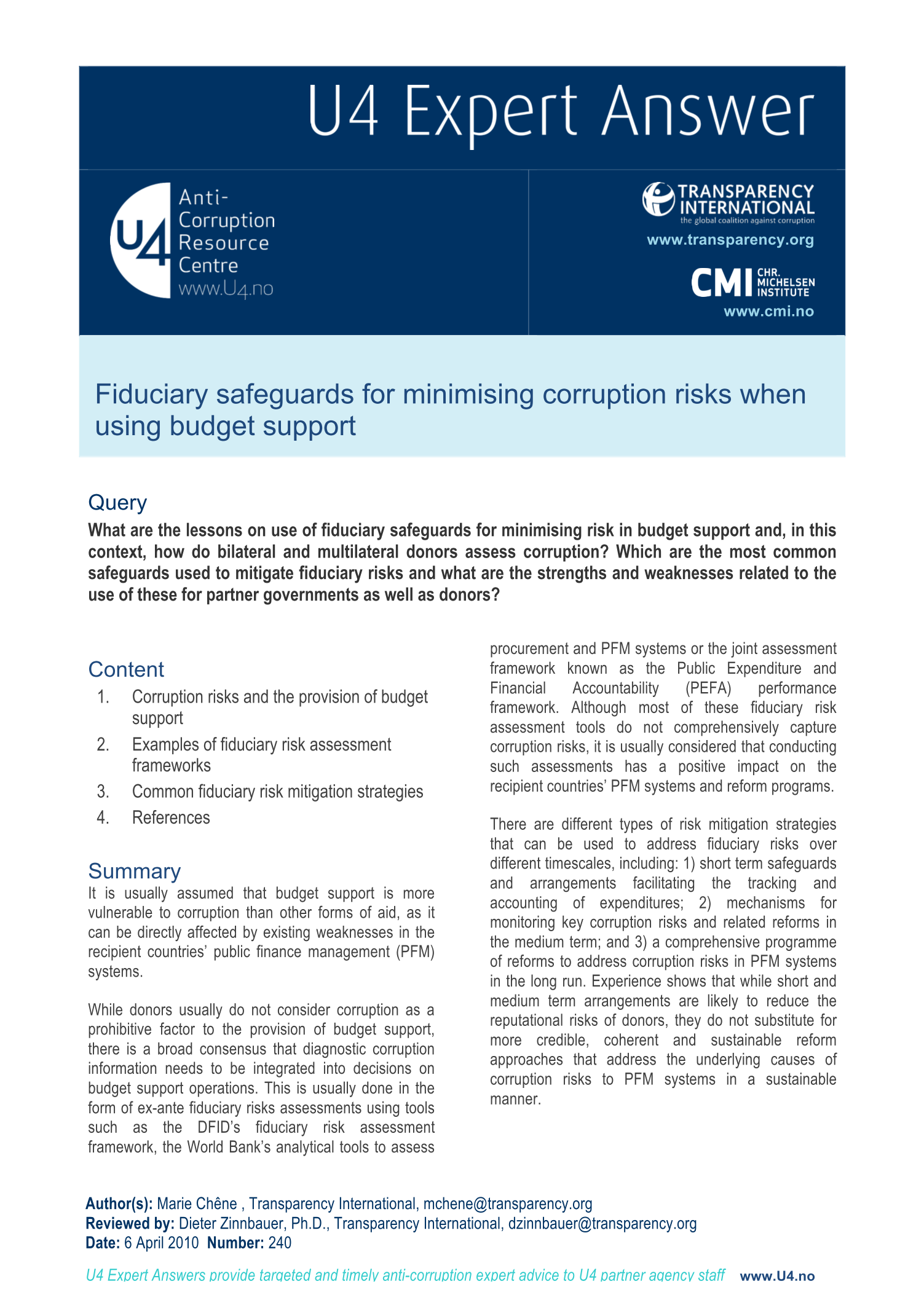U4 Helpdesk Answer
Fiduciary safeguards for minimising corruption risks when using budget support
It is usually assumed that budget support is more vulnerable to corruption than other forms of aid, as it can be directly affected by existing weaknesses in the recipient countries’ public finance management (PFM) systems. While donors usually do not consider corruption as a prohibitive factor to the provision of budget support, there is a broad consensus that diagnostic corruption information needs to be integrated into decisions on budget support operations. This is usually done in the form of ex-ante fiduciary risks assessments. Although most of these fiduciary risk assessment tools do not comprehensively capture corruption risks, it is usually considered that conducting such assessments has a positive impact on the recipient countries’ PFM systems and reform programs.

Cite this publication
Chêne, M. (2010) Fiduciary safeguards for minimising corruption risks when using budget support. Bergen: U4 Anti-Corruption Resource Centre, Chr. Michelsen Institute (U4 Helpdesk Answer null)
Disclaimer
All views in this text are the author(s)’, and may differ from the U4 partner agencies’ policies.
This work is licenced under a Creative Commons Attribution-NonCommercial-NoDerivatives 4.0 International licence (CC BY-NC-ND 4.0)


